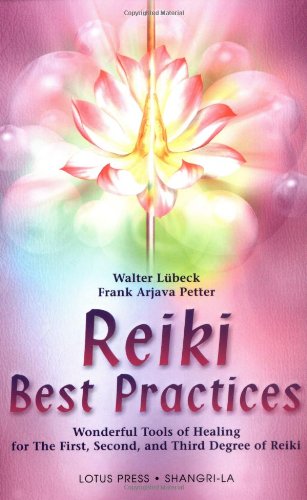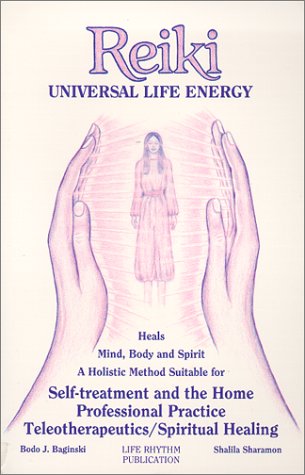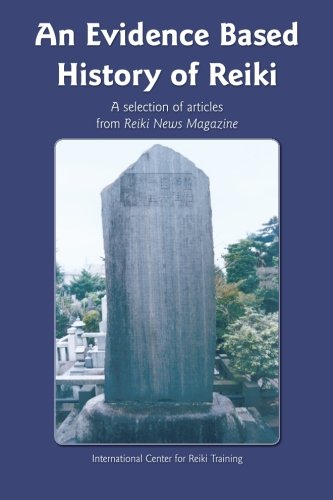Date: Tue Sep 21 2021 00:00:00 GMT+0300 (Eastern European Summer Time)
The top job in the Reiki field is the Reiki Master. It is Reiki Masters who train Reiki practitioners. Potential healing clients may see a Reiki Master as more qualified to give healing. From several practical angles, then, it's desirable to attain the rank of Reiki Master. And of course ones longing for spiritual development can be satisfied through Reiki Master training.
How you become a Reiki Master is simply to take Reiki Master training. But of course, that's overly simplified.
The question's to ponder before taking Reiki Master training are
- How do you get trained as a Reiki Master?
- Should you get trained as a Reiki Master?
- Is becoming a Reiki Master in your highest interest?
- Is Reiki Master training the best path for your journey to spiritual enlightenment?
- What does the word Master mean in this context?
- Can one become a Master in any meaningful sense of the word from a weekend workshop?
Getting trained as a Reiki Master simply means taking a class which offers the Master attunement. The students learn one or two new symbols, they learn how to attune people to Reiki, and they learn how to conduct Reiki classes.
As a practical matter it is easy to handle that training within a weekend. But, this raises the other questions just asked. The word Master has significant meaning to traditional spiritual lineages. Does this word seem compatible with the amount of material taught in a weekend class?
Getting training as a Reiki Master is easy, nowadays. There are tens of thousands of Reiki Masters around the world, and training courses are offered nearly everywhere. The original paradigm that Mrs. Takata used in training students was for Reiki Master training to require one year of close study or apprenticeship.
Let's back up slightly and review the levels of Reiki training:
- Level 1, the practitioner has a basic introduction, and is able to give healings in person
- Level 2, the practitioner has a more in-depth introduction, and is able to give remote healings
- Master, the practitioner has more training, has received all the Reiki symbols, and has learned how to teach Reiki classes
If you haven't yet started your Reiki training, it's necessary to begin at the beginning, find a Reiki teacher and take the Reiki Level 1 training. You should also review what's expected of a good Reiki practitioner, and gauge your readiness for the job.
In The Original Reiki Handbook of Dr. Mikao Usui we learn that Dr. Usui's students did not progress from Level 1 to Level 2 to Master in such rapid steps. Instead, graduating from Level 1 to 2 might take years depending on how long it takes to become proficient.
It's recommended to ponder your path, the purpose you have for taking Reiki training, and so forth. Is this a thing to be treated lightly? The title, Master, sure doesn't sound like a thing meant to be taken on whimsy, that you don't have anything better to do that weekend and you'll take Reiki Master training because your friend had it. Okay, yes, of course, some deep spiritual journeys do start with a whimsical decision like that. But, doesn't the title Master indicate some gravitas to what we'll do with Reiki training?
Should you train as a Reiki Master?
It's easy to say "yes, the world needs lots and lots of Reiki Masters". Instead, doesn't the world need Reiki Masters who are well suited to the role, who can offer spiritual leadership to students?
Is the only distinction between Reiki Level 2 and Reiki Master the knowledge of performing the attunement ceremony? Put another way, what does teaching Reiki students involve? Let me suggest that teaching students involves a lot more than just attuning them to the Reiki symbols. Being a ceremonial leader means developing spiritual leadership worthy of guiding students through some potentially deep healing.
Sometimes a person is drawn to Reiki because they are deeply wounded, and are seeking a healing of those wounds through experiencing Reiki. They may not be consciously aware of those wounds, or the desire for healing, since this may be happening at a deeper level than the conscious mind.
Even the students who don't require such deep healing need guidance from an experienced spiritual leader.
Teaching others a spiritual practice means being a spiritual leader. As a teacher you'll be giving guidance and support to your students. Your students will have questions - how do they do such-and-so - what do they do with troublesome clients - how do they resist the temptation to act out in sexual transgressions - how do they maintain humbleness and deep integrity - how do they handle other tricky situations. Are you ready to answer such questions yourself?
Do you understand what it takes to be a good healer? Do you understand how to convey that to students?
These questions are here to prompt you in some inner dialog. The idea is to help you clarify your purpose for taking Reiki Master training. If you feel ready then go for the training, but if you don't then what's the rush to do so?
Can you become a Reiki Master through online training
It's easy to find online training in Reiki, including Reiki Master training. It's even possible to find free Reiki training, including free Reiki Master training, online.
Perhaps the theory is that because a Reiki healing can be sent long distance, that a Reiki attunement can be sent long distance. But, how does that explain the Udemy video courses which claim to train students for Reiki Level 1, Level 2, and Reiki master? That is, you could envision a Reiki class offered through a video-conferencing service (like Zoom) that included Master training. The Master and the students would be in the training at the same time, and therefore when the Master performs the attunement ceremony everyone is lined up in the same time frame. But, with a recorded video that students view later, there is no alignment of time zone.
I cannot find it within me to recommend this route. There is a lot more to training as a Reiki practitioner, or a Reiki teacher, than just learning a few symbols and a ceremony or two.
As just discussed, some healing clients, and some Reiki students, will approach you with deep traumas they hope to heal. How can there be adequate holding of the healing needs for such students when the training is via a pre-recorded video?
For the potential Reiki student looking to Reiki training as a vehicle for deep healing, consider carefully these words. You are not in need of a quickie fix-me-up. You are in need of careful support by a wise spiritual leader who sees you clearly. You probably need a series of trainings and healing sessions over a period of time. Speaking from personal experience, I found it useful to return to the same Teacher on multiple occasions until I no longer needed that Teacher.
For the potential Reiki Master who wants to teach Reiki, is it in the best interest of all to simply offer quickie fix-me-up trainings?
A common service Reiki Masters offer is a weekly Reiki gathering. These gatherings are open to the public, and are an opportunity for people of varying training to experience and practice Reiki. Some of the people drawn to such gatherings are the ones who are looking for deep healing.
For example, I spent several years working with one Reiki Master, participating in her weekly gatherings, eventually becoming a member of the leadership team. One week, a fellow came to the gathering whose girlfriend had committed suicide, a few days previously, while on the phone with him. That's not a situation where you simply wave some Reiki symbols over the fellow and wish him the best. He was hurting, the connection with his girlfriend was raw, his heart was hurting, and he needed deep attention. What will you do when a situation like that arrives in your healing room?
As a Reiki Master facilitating Reiki gatherings, offering Reiki classes, and other services, folks with similar needs will be drawn to you. How do you prepare to support such people? Can you support such people if your entire training is a few pre-recorded videos and no direct training from a live human?
Your highest interest in Reiki or other healing training
Taking training in spiritual healing, whether it's Reiki or some other practice, puts us on a path of spiritual development. Many say that along this path one will develop what's called Enlightenment.
Whether that's true is difficult to determine. It is true that all of us have a common higher purpose - to develop greater presence of divine spirit. Put another way, to become a clearer channel of divine grace. It's likely that Reiki training is a way to develop such gifts.
In other words, the yearning to take Reiki training may automatically be in alignment with everyone's higher purpose.



 Reiki and Healing books, videos, tools
Reiki and Healing books, videos, tools





